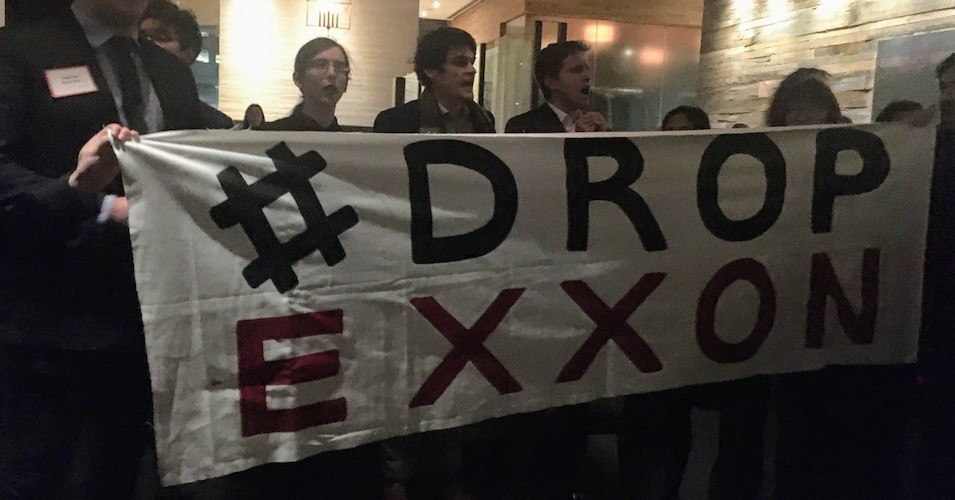“Law firms write the contracts for fossil fuel projects, lobby to weaken environmental regulations, and help fossil fuel companies evade accountability in court.”
By Jessica Corbett, staff writer for Common Dreams. Published 10-1-2020

Harvard Law School students demonstrated against a recruitment dinner hosted by Paul Weiss, a law firm representing ExxonMobil, in January 2020. (Photo: Aaron Regunberg/Twitter)
The top 100 legal firms in the United States “are accelerating the climate crisis” through their litigation, transactions, and lobbying on behalf of polluters, according to a first-ever report of its kind released Thursday by a newly launched law student organization.
Members of Law Students for Climate Accountability analyzed of tens of thousands of recent legal actions by the Vault Law 100 firms for the 2020 Law Firm Climate Change Scorecard, which grades firms A to F based on their work for fossil fuel clients from 2015 to 2019. Continue reading



![Little Rock, 1959. Rally at state capitol, protesting the integration of Central High School. Photo by John T. Bledsoe [Public domain], via Wikimedia Commons](http://occupyworldwrites.org/wp-content/uploads/2015/06/512px-Little_Rock_integration_protest.jpg)